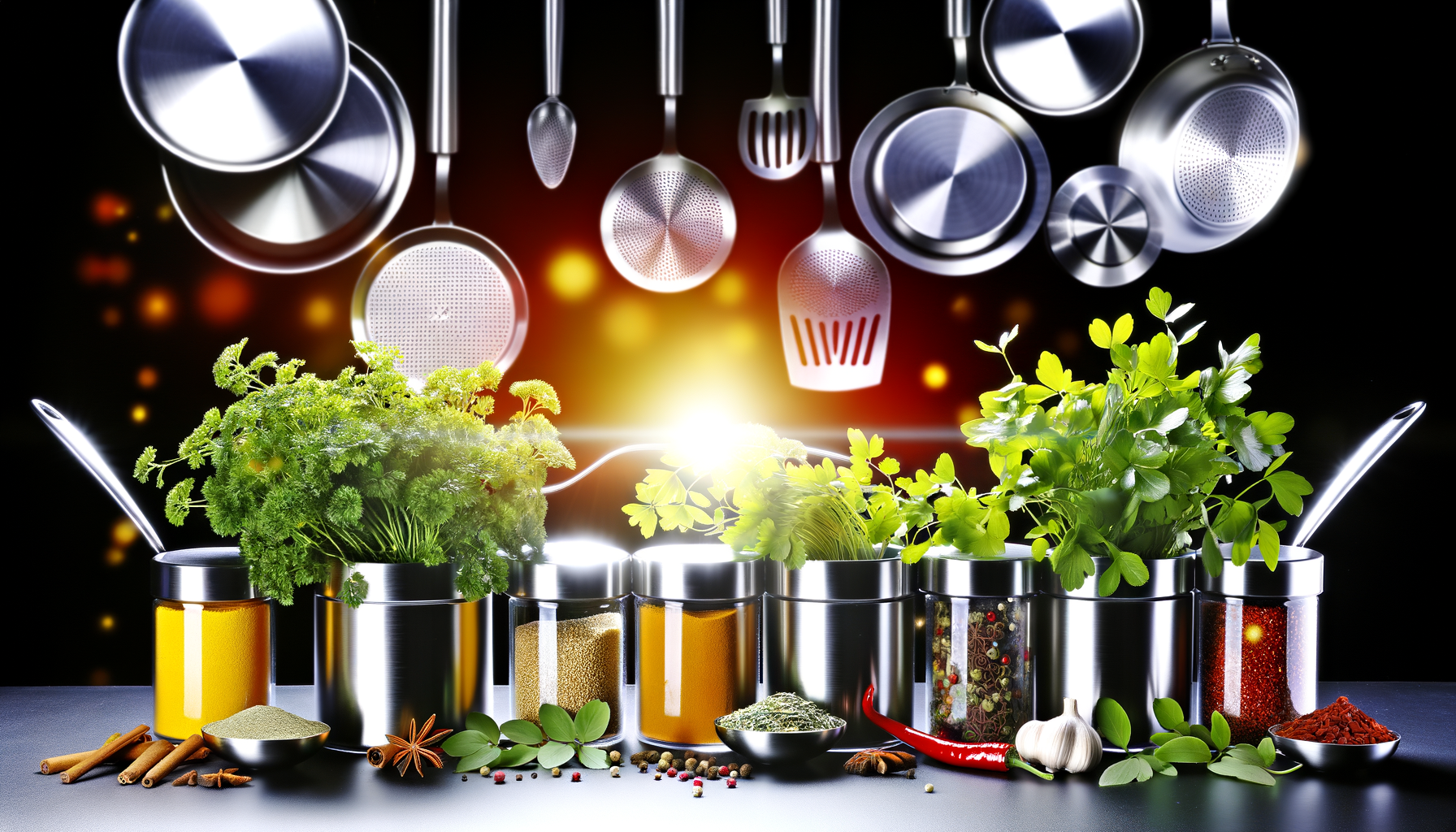
SEO strategies for a gourmet cooking blog should be tailored to elevate the blog’s visibility and authority in the culinary niche. Precisely, this involves using a mix of on-page and off-page optimization techniques, focusing on keyword research specifically relevant to gourmet cooking, crafting high-quality, engaging content, optimizing for local and mobile search, building a strong backlink profile, and leveraging social media as well as other content platforms. The goal is to attract the right audience, who is passionate about gourmet food and cooking, and engage them with useful, inspiring culinary content that ranks well on search engines.
Understand Your Audience and Goals
Before you launch into any SEO campaign, understanding your target audience is paramount. For a gourmet cooking blog, your audience is likely to be food enthusiasts, professional chefs, and home cooks looking for high-end culinary instruction and inspiration. Thus, your SEO strategies should be designed to cater to the informational needs and search behaviors of these segments.
Keyword Research is the Foundation
Start with in-depth keyword research. Utilize tools like Google’s Keyword Planner, SEMrush, or Ahrefs to discover both broad and long-tail keywords related to gourmet cooking. Look for keywords that have a decent search volume but aren’t excessively competitive. These queries will guide your content creation, enabling you to answer the questions your audience is asking.
Finding the Right Keywords
- Focus on terms like “gourmet recipes”, “upscale cooking tips”, or “luxury ingredient selection”.
- Research related questions and topics using “People also ask” and “Related searches” on Google Search.
- Explore keywords relating to cooking techniques, such as “sous vide” or “flambé”, that may be popular within gourmet circles.
- Investigate seasonal and trending topics in the gourmet food space to capitalize on timely content opportunities.
Create High-Quality, Engaging Content
Quality content is the cornerstone of SEO success. Write articles, recipes, and guides that go beyond the basics. Include high-resolution images, detailed instructions, and professional tips that provide real value to your readers. This will aid in boosting your blog’s authority and encourage users to spend more time on your site, which is a positive signal to search engines.
Blogging Best Practices
- Use your keyword research to inform your content calendar.
- Incorporate multimedia elements like videos and infographics to add depth to your content.
- Regularly update your blog with fresh content to keep both users and search engines coming back for more.
- Interlink between your posts to keep readers on your site longer and reduce bounce rates.
Optimizing Individual Posts
- Make sure each post has a clear, attention-grabbing title with a primary keyword.
- Utilize meta descriptions to give a brief overview of your content, including relevant keywords without stuffing.
- Structure your posts with subheadings (like h2 and h3 tags) and bullet points for better readability and SEO value.
- Optimize image file names and alt text with relevant keywords to boost your posts’ visibility in image search results.
Technical SEO and User Experience
Maintain a strong foundation of technical SEO. Ensure that your site’s structure is search engine friendly with a logical hierarchy, efficiently crawlable by search bots. This involves creating a comprehensive XML sitemap and using structured data markup to help search engines understand your content.
Site Speed and Mobile Usability
- Minimize page load times by optimizing images and utilizing caching.
- Implement responsive design to ensure your blog is mobile-friendly, as more users are searching for recipes and cooking tips on their smartphones.
- Secure your site with HTTPS to protect user data and gain a slight ranking boost from Google.
Off-Page SEO Strategies
Building credibility through off-page SEO is essential for any blog, especially in a niche as passion-driven as gourmet cooking. Focus on acquiring high-quality backlinks from authoritative culinary websites, directories, and food blogs. Guest blogging on reputed sites and getting featured in gourmet food magazines or online columns can significantly boost your domain’s authority.
Engage with the Culinary Community
- Participate in online food forums and social media groups related to gourmet cooking.
- Collaborate with other food bloggers and chefs for joint content projects or features.
- Encourage user-generated content, such as recipe submissions or cooking challenge entries, which can garner natural links and shares.
Leveraging Social Media
Social platforms like Instagram, Pinterest, and Facebook are ideal for promoting a gourmet cooking blog. Share stunning visuals of your dishes, short cooking tips, and behind-the-scenes peeks into your cooking process. Use relevant hashtags, engage with followers by replying to comments, and participate in social media trends and challenges related to gourmet cooking.
Implementing Social Media Best Practices
- Use scheduling tools to maintain a consistent posting frequency.
- Explore paid advertising options to target specific demographics interested in gourmet cooking.
- Actively seek out partnerships with influencers in the gourmet food space.
Local SEO for Cooking Classes and Events
If you offer cooking classes or host gourmet events, local SEO can be invaluable. Optimize your Google My Business listing, ensuring your contact information is up-to-date and you’re categorized correctly. Encourage former attendees to leave reviews, and make sure your business appears in local event listings and directories.
Measuring SEO Success
Track your SEO performance using tools like Google Analytics and Google Search Console. Monitor metrics such as organic traffic, bounce rate, conversion rate, keyword rankings, and backlink profile growth. These insights will help you refine your strategies and better understand content preferences and user behavior.
Finishing Thoughts
SEO for a gourmet cooking blog involves a multifaceted approach. It requires an understanding of your audience, meticulous keyword research, crafting of stellar content that engages and informs, and the implementation of both on-page and off-page SEO tactics. Remember to leverage social media and local SEO if applicable, and always keep an eye on your metrics to gauge and adapt your strategies for continued growth. With patience and consistency, your gourmet cooking blog can achieve the visibility and authority it deserves in the delicious world of food blogging.
Frequently Asked Questions
What is SEO and why is it important for a Gourmet Cooking Blog?
SEO, or Search Engine Optimization, is a set of practices designed to improve the appearance and positioning of web pages in organic search results. For a Gourmet Cooking Blog, good SEO practices ensure that your content reaches the right audience and is easily discoverable by people interested in gourmet recipes, cooking tips, and culinary experiences, leading to increased traffic and engagement on your blog.
What are the basic SEO strategies to start with for a new Gourmet Cooking Blog?
For a new Gourmet Cooking Blog, start with fundamental SEO strategies such as performing keyword research to identify what your target audience is searching for. Optimize your blog posts with these keywords, ensure that your website has a mobile-friendly design, and make your site’s navigation intuitive. Additionally, set up a Google My Business account if you offer local cooking classes or events, and create compelling meta descriptions for each post to improve click-through rates from search engine results pages (SERPs).
How can I perform keyword research for my Gourmet Cooking Blog?
Keyword research can be performed using various tools like Google’s Keyword Planner, SEMrush, Ahrefs, or Moz’s Keyword Explorer. Look for keywords that relate to the gourmet cooking niche; these could be related to specific types of cuisine, cooking techniques, or ingredient-focused terms. Consider both high-volume keywords and long-tail keywords which are less competitive and more targeted. Analyze the relevance and search volume of these terms and use them strategically within your blog content.
What kind of content should I create for a successful SEO strategy?
For a Gourmet Cooking Blog, your content should not only be original and high-quality but also diverse to cater to a variety of reader interests. Create recipe posts, how-to guides, reviews of cooking equipment, interviews with chefs, and articles on food trends. Use multimedia, like photos and videos, to make your content more engaging. Ensure your content addresses your audience’s search intent and includes the keywords you have researched.
How important are backlinks for my Gourmet Cooking Blog’s SEO, and how do I acquire them?
Backlinks are crucial for SEO as they signify to search engines that other websites consider your content valuable enough to link to. Gain backlinks for your Gourmet Cooking Blog by creating high-quality, link-worthy content. You can also guest post on other reputable food blogs, engage in food blogger communities, and collaborate with industry influencers. Remember to build backlinks naturally and from websites relevant to your niche.
Should I focus on on-page or off-page SEO for my Gourmet Cooking Blog?
Both on-page and off-page SEO are essential for a Gourmet Cooking Blog. On-page SEO includes optimizing individual web pages, such as headlines, subheadlines, and images, as well as internal linking. Off-page SEO involves activities outside your blog, such as building backlinks and engaging on social media. A balanced approach that prioritizes both aspects will contribute to your blog’s overall SEO success.
What role does social media play in the SEO of my Gourmet Cooking Blog?
Social media can indirectly influence your Gourmet Cooking Blog’s SEO by driving traffic to your content and increasing brand awareness. While social signals (likes, shares, follows) aren’t confirmed Google ranking factors, social media can lead to more visibility, which may result in more organic backlinks. It is beneficial to maintain an active presence on platforms like Instagram, Pinterest, and Facebook, where there’s a large foodie community.
How can I optimize images for SEO on my Gourmet Cooking Blog?
Images play a vital role in a Gourmet Cooking Blog, making the content more appealing. To optimize them for SEO, use descriptive file names, include alt text with relevant keywords, and compress the images to reduce load times. Also, consider using structured data to provide search engines with additional context about the content of your images, which can help to display them in rich results.
Can I use recipes to improve my Gourmet Cooking Blog’s SEO?
Yes, recipes can significantly improve your Gourmet Cooking Blog’s SEO. Format recipes with clear headings, include the necessary ingredients, directions, prep and cooking time, serving size, and high-quality images or videos. Utilize schema markup to give your recipes a chance to appear in rich snippets on SERPs, which can dramatically increase click-through rates. Consider creating unique and searchable titles for each recipe post to attract more visitors.
How often should I update my Gourmet Cooking Blog to maintain strong SEO?
To maintain strong SEO, you should update your Gourmet Cooking Blog regularly with fresh content. Posting on a consistent basis signals to search engines that your website is active and relevant. Aim to publish new content at least once a week, but quality should always take precedence over quantity. Updating old posts with new information and images can also help maintain the freshness of your blog.






